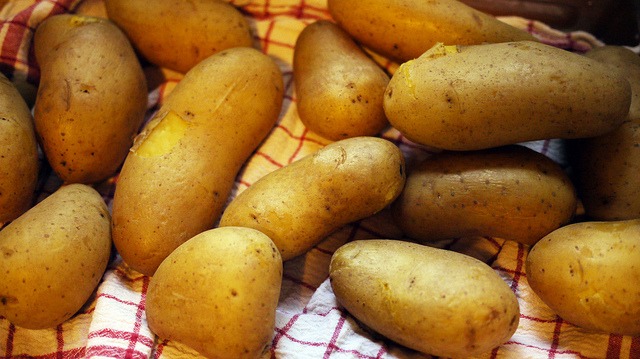
GM/Biotech Crops Report – April 2017
3rd April 2017- GM/Biotech Crops Monthly Reports (BELOW) form part of BCPC’s free three-tier Biotech Crops Info service.
- This service also includes a weekly round-up of news from around the globe – see BCPC Newslink GM Crops section.
- Plus – Free access database on over 300 GM/biotech products covering 23 crops in the global market visit BCPC’s GM/Biotech Crops Manual – Register here for free access.
Already registered? Click here
GM/Biotech Crops Monthly Report April 2017
Drug reversing aging in animals!A team at Erasmus University in the Netherlands has developed a drug that appears to reverse the aging process in mice. Treated mice that were effectively 90 ‘mouse years’ old had increased liver function, increased stamina and energy and their fur was dramatically improved. If this can be achieved by drug technology how long will it take to develop a method to achieve a similar effect by gene editing? More |
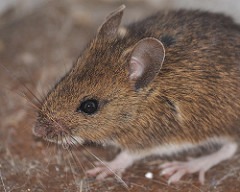 Source:Andrew |
|---|---|
 Source: Sam Chills |
Blight-resistant potatoes approved in USAPotatoes engineered by J R Simplot to be resistant to potato blight (Y9, X17 and E24) have been approved by USEPA for commercial use in America. Besides blight tolerance they also have reduced acrylamide content and tolerance of black spot bruising. Guidance on the growing of these potatoes is given here GM potatoes are also approved in Canada and plantings are expected to begin this year. More |
Atrazine-resistant waterhempA new gene conferring resistance to atrazine has been found in waterhemp. Atrazine is still used on 80% of the maize crop grown in America and the gene in waterhemp increases tolerance to atrazine 14-fold. If it can be transferred to other crops it could be a useful tool where atrazine is still used and its detection offers the possibility of de-activating this gene to make resistant weeds susceptible again. More |
 Source: Penn State |
 Source: K-State Research |
Gene-edited pigsPigs the world over suffer from infection with the PRRS virus and is estimated to cost the European pig industry 1.5 billion Euros per year. Now Edinburgh University has used CRISPR/Cas9 editing to snip out a small section of the pig genome with the result that the virus can no longer cause infection. More |
Oral delivery of RNAiNorthern armyworm attacks many important crops but researchers at the Inner Mongolian University have found a new way to lessen the damage caused by this pest. Chitinase genes in the gut can be switched off by feeding the insects with an artificial diet that contains engineered E. coli bacteria that produce the appropriate RNAi and this leads to increased mortality and lower body weight. More |
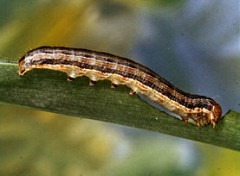 Source: MUExtension417 |
 Source: XoMEoX |
Afalotoxin-free maizeWhen afalotoxin is ingested it can cause a variety of problems including lung cancer. It is produced by an Aspergillus fungal infection of maize but a geneticist at the University of Arizona has snipped out a section of the fungal genome and inserted it in the maize genome which has silenced the fungus’s ability to produce afalotoxin. More |
GM trees fight backAmerican chestnut trees were once common in America before they were almost wiped out by chestnut blight. Now transgenic trees resistant to the disease have been developed at the University of New York and once it has passed the regulatory hurdles these trees can be re-introduced to the country. It also holds the promise of developing similar disease-resistant lines of ash, elm, hemlock and walnut so we might see elms back in the UK. More |
 Source: Dutchy42 |
|---|---|
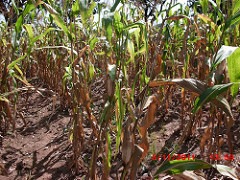 Source: CDKNetwork |
Maize yields increased by 10 – 15%The PLA1 gene in maize is involved in limiting the effects of drought stress on the plants and increasing the expression of this gene has resulted in bigger plants with higher yields of bigger grains. As climate change begins to increase the stress on many crops it is thought that this technique could allow them to deal with any increased drought stress more effectively. More |
Glyphosate is not carcinogenicThe European Chemicals Agency has completed its review of all the available evidence and confirmed that glyphosate does not meet the criteria for it to be classified as a carcinogen, a mutagen or to be toxic to reproduction. The tallow amine formulations are being withdrawn from the market but formulations that do not contain tallow-amines will continue to be widely available. More |
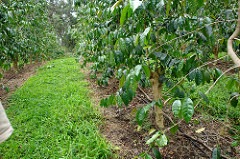 Source: Scott Nelson |
The latest additions to the GM/Biotech Crops Manual database are:
- E12 – potato with reduced acrylamide content and tolerance of black spot bruising – approved for food use in Australia and feed use in New Zealand.
- MON87751 x MON87701 x MON87708 x MON89788 – soybean with resistance to Lepidopteran insects and tolerance of glyphosate and dicamba – approved for food use in South Korea.
FOR INSTANT ACCESS TO GM BIOTECH MANUAL CLICK HERE (Registration required)
Already Registered? Click here to access

